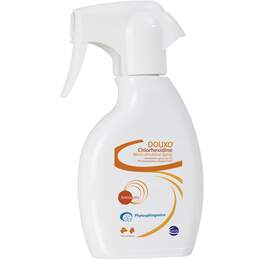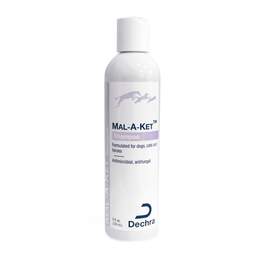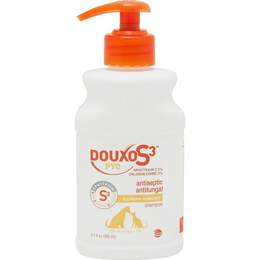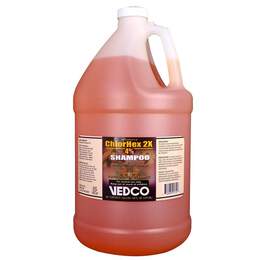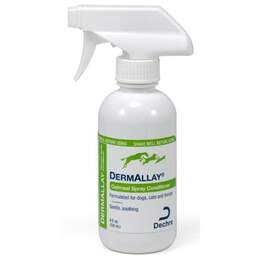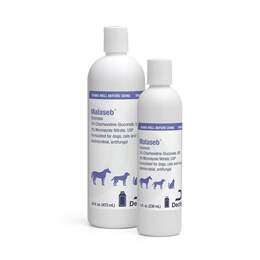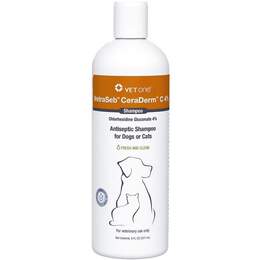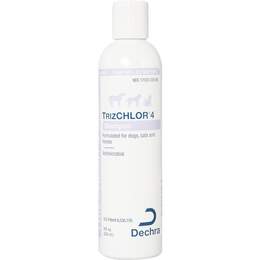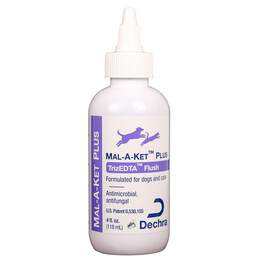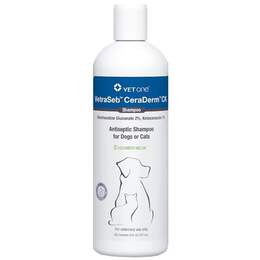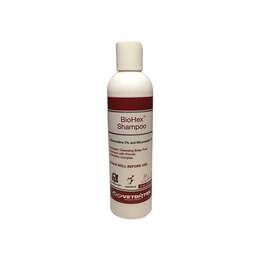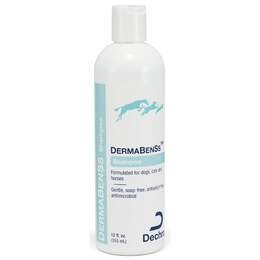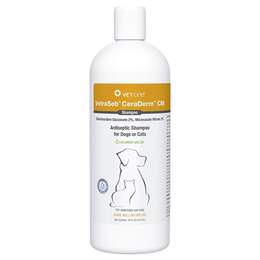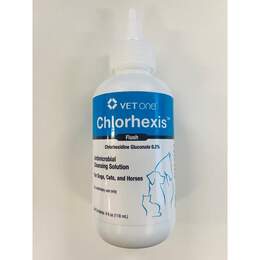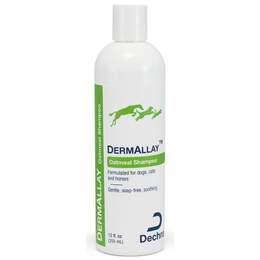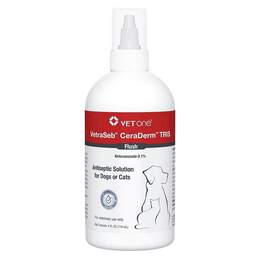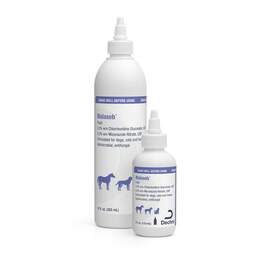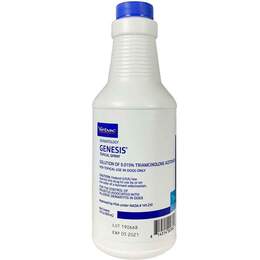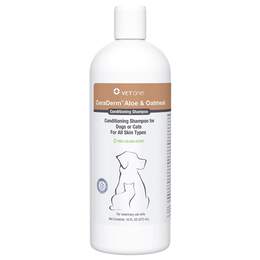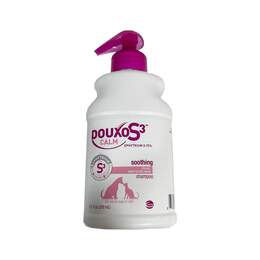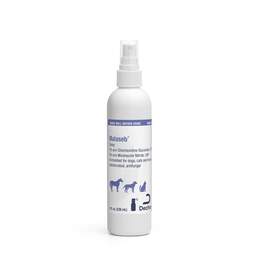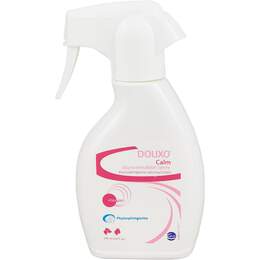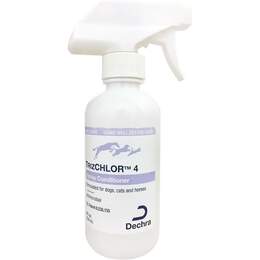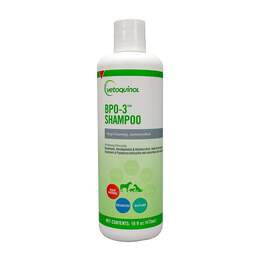Cat Medicated Shampoo & Spray
Cats are efficient groomers and usually do an excellent job of keeping themselves clean. However, if they suffer from conditions such as allergies and parasites, they may need some help. A medicated shampoo for cats can help with these conditions. Medicated shampoos are formulated to treat skin conditions such as fungal, bacterial, and yeast infections, as well as symptoms such as itching, dry skin, and dandruff.
Conditions Treated by Medicated Shampoo for Cats
Medicated shampoos can help your cat's skin heal from a number of dermatological conditions. Be sure to always use a shampoo formulated for cats unless your veterinarian suggests otherwise. Although there are many reasons your veterinarian might prescribe a medicated shampoo for your cat, the main conditions fall under the general categories below.
Bacterial Skin Infections
Bacterial skin infections usually affect the surface layer of a cat's skin. You may notice red, irritated skin, excessive hair loss due to scratching the area, and flaky, crusty skin. An antibacterial shampoo will usually clear up a mild skin infection, a more severe infection may need a combination of oral antibiotics and an antibacterial shampoo.
Fungal Skin Infections
Fungal skin infections can occur in the outer and deeper layers of the skin. The most common fungal infection in cats is ringworm. You may notice a round, red spot on your cat's skin, sometimes accompanied by hair loss, scaly skin, and small pustules. Because ringworm is so infectious and can spread to people and other pets in the household, immediate treatment is recommended. Treatment may include a combination of medicated shampoo or spray as well as oral antifungal medication.
Skin Allergies
Medicated shampoo for cats can relieve inflammation and itchy skin caused by allergies and remove potential allergens from your cat's skin and coat. This is a key part of cat allergy care that can help keep bacterial infections at bay.
If you notice skin infection symptoms in your cat, speak with your veterinarian. They will recommend a prescription or over-the-counter shampoo to treat your cat's specific skin condition.
Benefits of Medicated Shampoo for Cats
If your cat has a skin condition, use only the medicated shampoo or spray recommended or prescribed by your veterinarian. Do not use a shampoo formulated for humans, especially if your cat has a severe medical condition. Shampoos formulated for cats are pH balanced for their skin and contain ingredients that promote healing. Below are some additional benefits of medicated shampoos for cats.
Relieves Itchiness
Watching your cat suffer as they constantly scratch their irritated skin and make it worse can be difficult. Medicated sprays and shampoos can moisturize their skin to relieve dryness and reduce the inflammation and irritation often caused by continual scratching.
Helps Heal Dermatological Conditions
While dermatological conditions can be hard to treat, as continual itching only makes the problem worse. A medicated shampoo or spray can help relieve the irritation, itchiness, and inflammation they cause. Giving your cat relief can help them heal faster.
Keeps Cat's Skin Hydrated and Moisturized
In addition to active ingredients that treat your cat's skin, medicated shampoos also contain ingredients that help keep their skin clean, moisturized, and healthy and their coat soft and beautiful.
How to Use Cat Shampoos and Sprays
You can bathe your cat in the bathtub, kitchen sink, or laundry or utility room, as long as the area is warm and you have access to warm water. Keep clean, dry towels and a kitchen timer within easy reach. A spray nozzle attachment will make the rinsing easier, but you can fill a large cup or bowl with warm water to pour over your cat if you don't have one. Always use warm or lukewarm water, never hot or cold water.
Medicated shampoos work best when applied to a clean, wet coat, so the first step is to thoroughly rinse your cat with warm water. Medicated shampoos usually don't contain detergents or soaps so that they won't clean a cat. Give your cat a bath, if needed, before treating it with medicated shampoo. Check with your veterinarian to ensure that an over-the-counter shampoo is appropriate for your cat's skin condition.
Beginning with the most seriously affected areas, work the medicated shampoo into your cat's coat. After rubbing the shampoo into these affected areas, you can massage it into the coat on the rest of their body.
Once you have thoroughly applied the shampoo into your cat's coat. Set the kitchen time for the amount of time recommended by your veterinarian or the instructions on the label. Setting the timer is key – if you try to guess, you are likely to underjudge the time, and your cat won't get the full benefit of the medication in the shampoo.
Completely and thoroughly rinse all shampoo from your cat's body. It is essential to ensure that all shampoo is removed from your cat's skin.
If using a medicated spray for your cat, spray directly onto the irritated areas, according to directions on the packaging or your veterinarian's instructions. Avoid getting the spray into the cat's eyes. Keep your cat from licking the treated area until dry.
Tips for Shampooing Your Cat
- Wear old clothes that you don't care if they get wet or stained.
- Place a towel in the sink or in the bathtub to help keep your cat from slipping and leave the drain open.
- Read the product label before use and follow your veterinarian's instructions.
- Make sure the water temperature is comfortable for your cat. If the water is too warm, it may strip essential oils and exacerbate dry, itchy skin.
- After rinsing your cat, dry them with a hand towel. Do NOT use a blow drier, heat will over-dry the skin and may increase itchiness.
- Check your cat's skin condition and report any concerning changes to your veterinarian.
No one likes to see their cat itching or hurting. Medicated shampoo for cats can offer relief and help return their skin to health. These products are formulated to help with a variety of different skin conditions. Speak with your veterinarian about which medicated shampoo or spray is best for your cat's skin condition.


